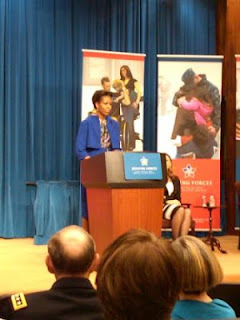Good afternoon,
This is not a new topic, but two things have made up the bulk of calls this week from Caregivers: (1) Appointments cancelled by VA, but not communicated to the Caregiver or Veteran, and (2) The written medical record account of the same incident.
In our view, communication is nearly everything. It is about logistics, use of resources, and most of all, respect for everyone's time. When a veteran misses an appointment, it is often characterized as a serious problem and the record reflects notes such as "Veteran refused treatment", "No show", "Missed appointment". Fair enough. But, when families drive hours to a series of mental health appointments and arrive to discover that the physician is absent for any reason, it presents a bigger problem for all concerned.
Veterans in most cases are trying to become well. Caregivers are working hard to manage appointments, travel, logistics, and most of all their veteran. Surprises are not welcomed by those with PTSD. And, to find the medical record later reflecting an inaccurate assessment - well, that isn't a good faith effort. It comes as no surprise to us that many of the more desperate phone calls focus/obsess on the slap of an unfair record of a simple mistake. Let's face it, mistakes can be made and "oops" moments do occur. However, a simple apology and a confirmation text, email, or call would be welcomed.
The provider isn't perfect, but may we caution that the provider may need to step up their communication and customer service efforts? And, Caregivers, a quick call to confirm before driving hours might well be advised. Courtesy just might become contagious!
Linda



